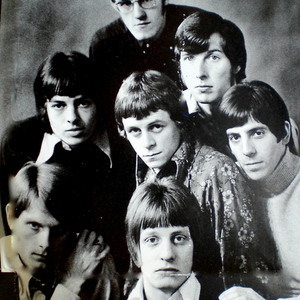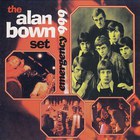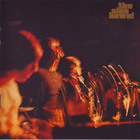The Alan Bown Set

- Genre:
- Pop/Rock
The Alan Bown Set was formed mid-1965 with the following personnel: Alan Bown - leader/trumpet, Dave Green - sax/flute, Jeff Bannister - organ/lead vocals, Stan Haldane - bass guitar/vocals, Pete Burgess - guitar/vocals and Vic Sweeney - drums/vocals. Green, Haldane and Bannister had previously been in The John Barry Seven with Alan Bown, whom John Barry had appointed as leader. After signing a deal with Pye Records, The Alan Bown Set recorded their first single, which featured Jeff Bannister on lead vocals.
After signing a deal with Pye Records, The Alan Bown Set recorded their first single, which featured Jeff Bannister on lead vocals. ?Can't Let Her Go' was nominated the A-side with the Curtis Mayfield song, ?I'm The One Who Loves You' on the B-side. ?I'm The One' was a much livelier track and had previously been part of The John Barry Seven's repertoire thus sounding more honed. Preferring this track, Tony Hatch, the producer, suggested it should be the A-side, but a record company decision outvoted him. ?Can't Let Her Go' was released in September 1965.
In January 1966, Dave Green left the band and was replaced by John Anthony Helliwell. Soon after, in February 1966, lead vocalist Jess Roden joined the band and his vocals were featured on the next single, ?Everything's Gonna Be Alright' followed not long after with the more successful single, ?Headline News'.
In July 1966, The Alan Bown Set appeared on ?Ready Steady Go' and two days later, made their debut at The Windsor Jazz Festival. These events were interspersed with appearances at the famous Marquee Club in London.
In September1966, the band recorded ?London Swings Live at the Marquee Club', a live album with The Alan Bown Set featured on one side and Jimmy James and The Vagabonds on the other. In November, Pete Burgess was replaced by Tony Catchpole.
Early in 1967, Jacques Loussier commissioned The Alan Bown Set to record a soundtrack for the film ?Jeu De Massacre'. This was premiered at the1967 Cannes Film festival, which the band attended and whilst in the area made an appearance on Monte Carlo TV.
Later in 1967, the band dropped the suffix ?Set' and became The Alan Bown! Another prestigious Windsor Jazz Festival followed and further singles, ?Toyland', ?Story Book' and the first album, ?Outward Bown', were released.
During 1968, the band made several television appearances. ?All Systems Freeman', ?The Simon Dee Show' and ?Eamonn Andrews Today'.
In August 1968, the band appeared on ?Top of the Pops', performing the single ?We Can Help You'. Already at number 26 in the national charts, it was assured a higher place the following week but then the pressing plant for the record label MGM went on strike and halted production. By the time the dispute was resolved, the single had lost crucial potential sales and disappeared from the charts.
Soon after this debacle, the band appeared on a major TV spectacular hosted by Jack Good, entitled ?Innocence, Anarchy and Soul'.
In 1969, two more singles were released, ?Still as Stone' and ?Gypsy Girl'. A new album was issued on Deram, simply entitled ?The Alan Bown!' Immediately after recording the album, Jess Roden announced his departure. Alan Bown then recruited Robert Palmer who re-recorded the vocals on the album prior to its release.
Island Records signed the band early in 1970 and a new album entitled ?Listen' was released, featuring Robert Palmer. An appearance followed on BBC TV's Disco 2 (a forerunner of the Old Grey Whistle Test). Robert Palmer decided to leave the band as soon as the new album had been completed. In mid-1970, Gordon Neville re-recorded all the vocal tracks on the album and Robert departed in October.
- Sort by

Emergency 999
- Year:
- 2000
- Tracks:
- 21
- Bitrate:
- 320 kbps

Stretching Out
- Year:
- 1971
- Tracks:
- 6
- Bitrate:
- 320 kbps

Listen
- Year:
- 1970
- Tracks:
- 9
- Bitrate:
- 320 kbps

The Alan Bown! (Reissued 2010)
- Year:
- 1968
- Tracks:
- 12
- Bitrate:
- 320 kbps

Outward Bown
- Year:
- 1968
- Tracks:
- 16
- Bitrate:
- 320 kbps
 Amen Corner
Amen Corner  Georgie Fame
Georgie Fame  Zoot Money
Zoot Money